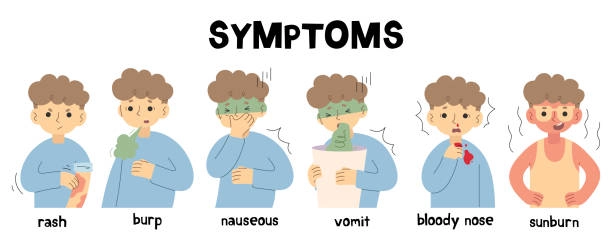What Are Your Legal Options in a Hernia Mesh Case?

Hernia Mesh Complications: What You Need to Know?
Hernia mesh complications can arise due to various factors, such as the type of mesh used, surgical technique, and individual patient responses. Common complications include chronic pain, infection, mesh migration, and bowel obstruction. These issues can cause significant discomfort and may require additional surgeries to correct. Patients experiencing complications after hernia repair should seek medical attention and legal assistance to explore their rights.
If you have suffered complications due to hernia mesh, legal options may be available. Many patients have filed lawsuits against manufacturers, alleging defective products, failure to warn about risks, or negligence. Compensation can cover medical expenses, lost wages, and pain and suffering. Consulting with an attorney specializing in medical device litigation is essential to determine your eligibility for legal action. For more details on legal claims, visit Legal Case Review.
Additionally, keeping detailed medical records is crucial. Documentation of symptoms, treatments, and healthcare communications strengthens your case. Seeking immediate medical evaluation and maintaining thorough records can provide critical evidence in legal proceedings.

Recognizing Hernia Mesh Failure Symptoms
Many individuals may experience complications without realizing they stem from a failing hernia mesh. Some key symptoms include:
- Persistent pain at the surgical site
- Swelling or a noticeable bulge
- Nausea and vomiting
- Changes in bowel habits
If these symptoms appear, consult a healthcare provider immediately. Early detection is essential, as some complications can worsen over time. Documenting symptoms and medical visits can be invaluable for both treatment and potential legal action.
Hernia mesh failure can severely impact daily life. If you suspect complications, seeking both medical and legal guidance can help you take appropriate steps to protect your health and legal rights. Patients affected by defective hernia mesh implants may qualify for compensation through lawsuits, including individual claims or class-action cases.
Exploring Legal Avenues for Hernia Mesh Cases
Patients experiencing hernia mesh complications can explore several legal options. Filing a lawsuit can help hold manufacturers accountable and provide financial relief for affected individuals. Some legal avenues include:
- Personal Injury Lawsuits: Filed against manufacturers for defective products or failure to warn consumers of risks.
- Class-Action Lawsuits: Multiple plaintiffs with similar complaints unite to file a single lawsuit, increasing efficiency.
- Multidistrict Litigation (MDL): A streamlined approach that consolidates cases for pretrial proceedings.
A knowledgeable attorney can evaluate your case and recommend the best course of action. Filing a claim requires substantial evidence, including medical records and proof of damages. If you or a loved one has suffered due to hernia mesh complications, speaking with an attorney promptly ensures compliance with legal deadlines.
Importance of Medical Documentation in Hernia Mesh Cases
Accurate medical documentation is essential in proving a hernia mesh claim. Detailed records help establish a direct link between the mesh and resulting complications. Key documentation includes:
- Diagnosis and treatment details
- Surgical reports
- Follow-up care notes
- Prescription and medication history
- Test results and imaging reports
Additionally, keeping a personal journal of symptoms, pain levels, and emotional distress strengthens a legal claim. The more evidence available, the stronger the case against manufacturers. Patients who diligently document their health experiences have a greater chance of securing compensation.
Product Liability and Hernia Mesh Lawsuits
Product liability laws protect consumers from defective medical devices. If a hernia mesh product causes harm, manufacturers can be held accountable under three primary legal theories:
- Design Defect: The product is inherently dangerous due to flawed design.
- Manufacturing Defect: Errors in the production process make the product unsafe.
- Failure to Warn: The company neglected to provide adequate warnings about potential risks.
Patients can file lawsuits if they believe their complications resulted from any of these defects. Legal representation is crucial, as medical device litigation is complex. Attorneys specializing in this field can analyze medical records, consult experts, and build a compelling case.
For further insights into defective medical devices, refer to credible sources such as the U.S. Food & Drug Administration (FDA).

Common Defenses Used by Manufacturers in Hernia Mesh Cases
Hernia mesh manufacturers frequently use various defenses to dispute liability in lawsuits. Common arguments include:
- Regulatory Compliance: Companies claim the product met all safety standards before reaching the market.
- Surgical Error: The manufacturer may shift blame to the surgeon, asserting improper implantation caused complications.
- Patient Negligence: Defendants argue that post-surgery care failures contributed to adverse outcomes.
- Pre-Existing Conditions: Companies may claim symptoms result from unrelated health issues.
- Statute of Limitations: Defendants may argue that plaintiffs waited too long to file claims, making them ineligible for compensation.
Awareness of these legal defenses helps plaintiffs prepare counterarguments with the help of skilled attorneys.
How to Choose the Right Attorney for Your Hernia Mesh Case?
Selecting the right attorney for your hernia mesh case is crucial to achieving a favorable outcome. Start by looking for attorneys who specialize in medical device litigation or personal injury law. Their expertise in handling similar cases can significantly impact your case.
Consider the following factors when choosing an attorney:
- Experience: Look for an attorney with a proven track record in hernia mesh cases.
- Reputation: Research online reviews and testimonials to gauge their reliability.
- Communication: Choose an attorney who communicates clearly and promptly.
- Fees: Understand the fee structure, as many personal injury attorneys work on a contingency basis.
- Consultation: Take advantage of free consultations to assess their approach and suitability.
By carefully evaluating these factors, you can select an attorney who will effectively represent you and help you navigate the legal process.
Compensation Available in Hernia Mesh Lawsuits
Compensation in hernia mesh cases varies based on injury severity and financial losses. Plaintiffs may seek damages for:
- Medical Expenses: Covers surgeries, hospital stays, medications, and ongoing care.
- Lost Wages: Compensation for income lost due to inability to work.
- Pain and Suffering: Addresses physical pain, emotional distress, and reduced quality of life.
- Punitive Damages: Awarded in cases where the manufacturer’s negligence was particularly egregious.
Proper legal representation ensures plaintiffs seek full compensation for damages suffered due to defective hernia mesh implants.
FAQs
1. How do I know if my hernia mesh has failed?
Signs of failure include chronic pain, swelling, nausea, vomiting, and bowel obstruction. Consult a healthcare provider for diagnosis and treatment.
2. Can I file a lawsuit if my hernia mesh complications appeared years after surgery?
Yes, but legal deadlines vary by state. An attorney can determine if you qualify under your state’s statute of limitations.
3. What if my surgeon never warned me about potential complications?
Failure to warn patients of risks may be grounds for a lawsuit. Legal claims can target both the manufacturer and, in some cases, medical providers.
4. How long does a hernia mesh lawsuit take?
The timeline varies. Some cases settle in months, while others take years, depending on complexity and court backlog.
5. What if I cannot afford a lawyer?
Many attorneys work on a contingency basis, meaning legal fees are only paid if you win your case.


